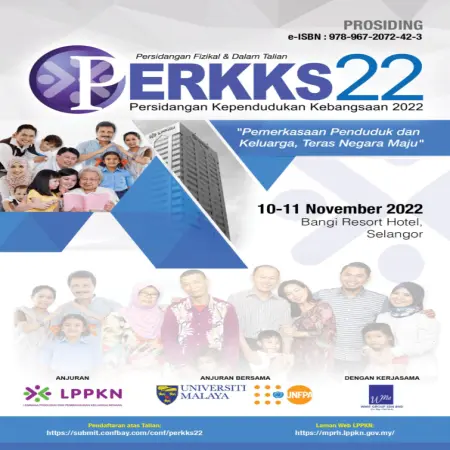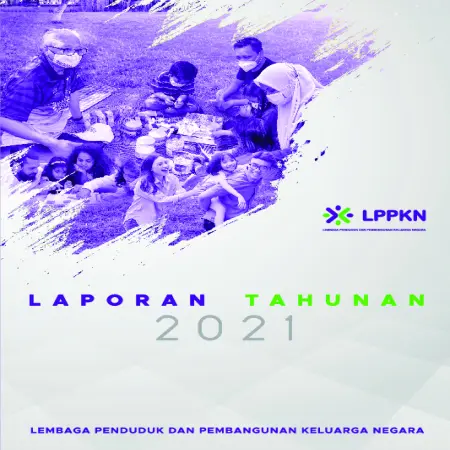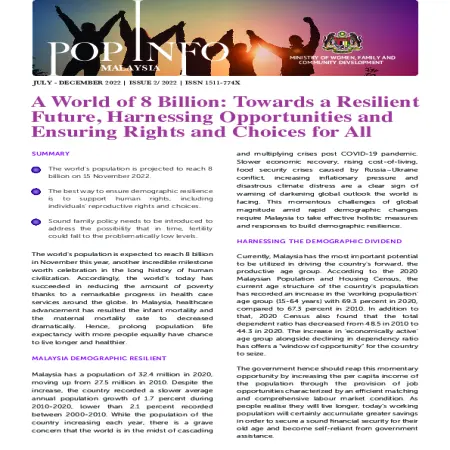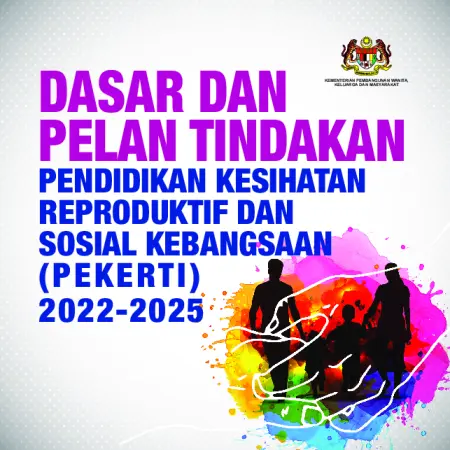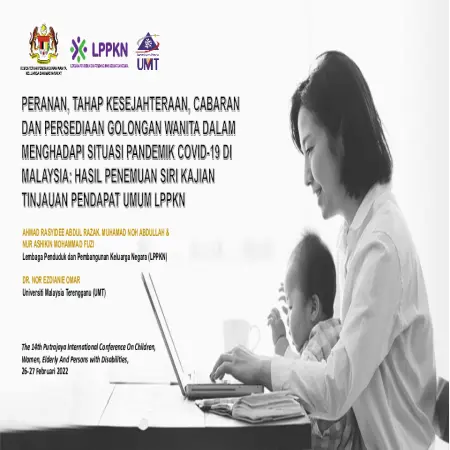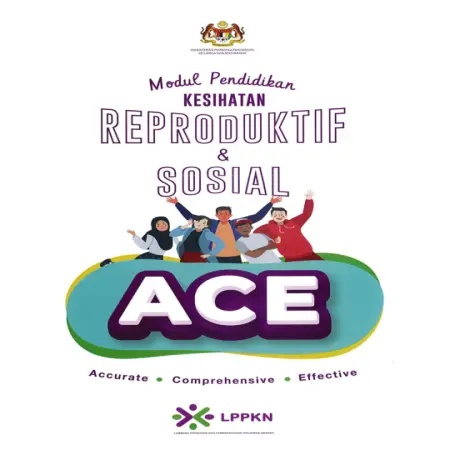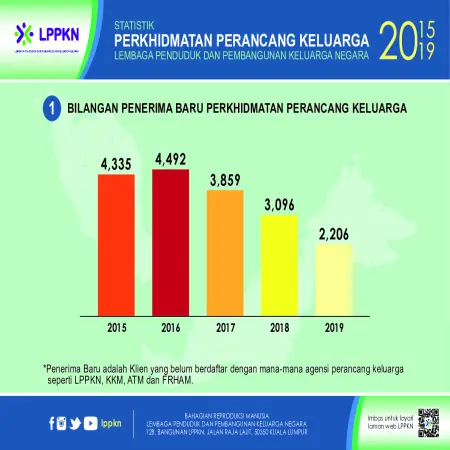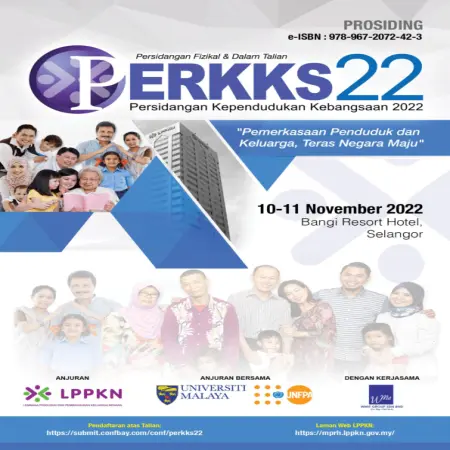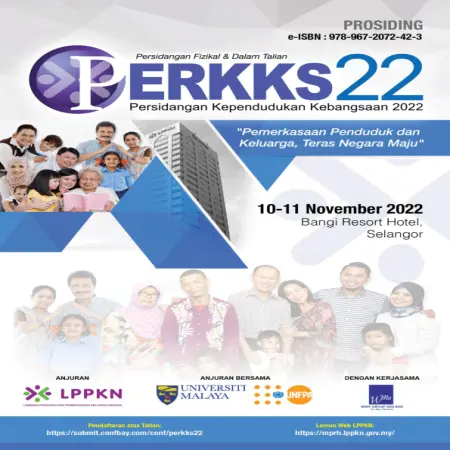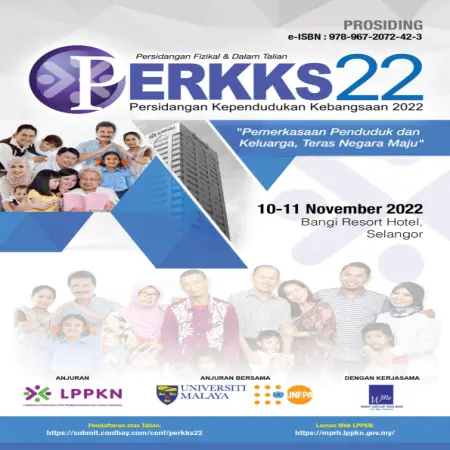TOPICS
Results for Topics : "Reproductive Health"
|
|
Prosiding Persidangan Kependudukan Kebangsaan 2022 (PERKKS 22): “Pemerkasaan Penduduk dan Keluarga, Teras Negara Maju”
Item Type: Book
Editor:
Year: 00/12/2022
Abstract: Collection of papers presented during the 2022 National Population Conference (PERKKS 22), 10-11 November 2022, Bangi Resort Hotel, Selangor.
|
|
|
|
|
|
A world of 8 billion: Towards a resilient future, harnessing opportunities and ensuring rights and choices for all
Item Type: Newsletter
Editor:
Year: 00/11/2022
Abstract: The world's population is projected to reach 8 billion on 15 November 2022. The best way to ensure demographic resilience is to support human rights, including individuals' reproductive rights and choices.
|
|
|
|
|
|
Dasar dan Pelan Tindakan Pendidikan Kesihatan Reproduktif dan Sosial Kebangsaan (PEKERTI) 2022-2025
Item Type: Act & Policy
Editor:
Year: 08/09/2022
Abstract: This new PEKERTI policy is applicable to every individual regardless of age and gender and takes into account ethnic, religious and cultural diversity. Focus will be given to producing a healthy population in terms of reproductive and sexual health based on high moral values and practicing responsible behavior and mutual respect for each other.
This PEKERTI policy has been streamlined to achieve 5 objectives which are to (i) increase the awareness of Malaysians regarding the importance of reproductive and social health education, (ii) develop evidence-based reproductive and social health education programs, (iii) develop human expertise and modernity in aspects reproductive and social health education, (iv) carry out research in aspects of reproductive and social health education and (v) ensure programs and services under this policy are continuously monitored and evaluated.
In order to achieve these 5 objectives that have been set, 5 Cores have been identified as policy implementation machinery namely (i) Advocacy, Promotion and Prevention, (ii) Comprehensive Reproductive and Social Health Education Covering All Age Levels, (iii) Human Capital and other Resources for Reproductive and Social Health education, (iv) Research and Development and (v) Monitoring and Evaluation.
|
|
|
|
|
|
Peranan, tahap kesejahteraan, cabaran dan persediaan golongan wanita dalam menghadapi situasi pandemik Covid-19 di Malaysia: Hasil penemuan siri kajian tinjauan pendapat umum LPPKN
Item Type: Conference or Workshop Item
Editor:
Year: 26/02/2022
Abstract: Since the outbreak of the COVID-19 epidemic in the country since early 2020, the economy and community life have been severely affected. The increase in the number of daily cases as a result of several new waves of COVID-19 has also prompted the Government to implement a series of Movement Control Orders (MCO) nationwide. As a result, society, especially women, are seen to be increasingly stressed due to the loss of sources of income, limited involvement in outdoor activities and problems in balancing between work and family hours. Aware of this situation, the National Population and Family Development Board (NPFDB) has taken the initiative to conduct a series of public opinion polls throughout 2020 and 2021. This study aims to explore the role, level of well -being, challenges and preparation of women in facing pandemic situations. COVID-19 in Malaysia. This study is an online survey study. The findings of this study are a reflection of the current situation of society and family institutions in the face of the new wave of COVID-19. The results of a survey that focused on women showed that women were more affected than men. Although the level of well -being of women in the country is still at a satisfactory level, various issues and challenges are faced especially for those who are married. Issues of family management, children's education at home and more flexible working hours should be highlighted for consideration by the Government. It is hoped that various initiatives and development plans related to women can be planned as well as further strengthen the existing policies towards achieving the aspirations of the Malaysian Family. In general, this paper contributes to the knowledge related to the current situation of women in the face of new normative life. While in particular, this paper contributes to knowledge related to the role, well-being, challenges and preparation of women in facing the COVID-19 pandemic situation.
|
|
|
|
|
|
Modul Pendidikan Kesihatan Reproduktif dan Sosial ACE (Accurate, Comprehensive, Effective)
Item Type: Module
Editor:
Year: 00/01/2022
Abstract: LPPKN published an intervention module called Module ACE – Accurate, Comprehensive and Effective on 2021 as a product from The Youth Intervention Study: Best Practices for Youth Intervention Programs that was carried out in 2016. This module is suitable to be used for adolescents age 10 to 24 years old.
The ACE module covers comprehensive reproductive health and sexuality education which includes legislation on sexual violence, gender equality and human trafficking. The module has been implemented on targeted groups consist of youths and peer educators, and proven to expand their knowledge on reproductive health. The activities from the module are delivered using pedagogy method that encourage on two-way interaction and responsiveness.
|
|
|
|
|
|
Statistik data perkhidmatan perancang keluarga LPPKN tahun 2015-2019
Item Type: Report
Editor:
Year: 00/00/2022
Abstract: National Population and Family Development Board Malaysia (NPFDB) have prepared a statistic report on family planning services at the NPFDB level according to the number of new recipients, type of contraceptive, state, age group, ethnicity, strata and employment status for 2015 to 2019. This report only consist new recipients, which is new clients who have not registered with any of family planning agency such as NPFDB, Ministry of Health (MOH), Malaysian Armed Forces (ATM) and Federation of Reproductive Health Associations Malaysia (FRHAM). The breakdown of statistic report by type of contraceptive have included implant, injection, condom, pill, intrauterine device and non-modern methods. Meanwhile, the breakdown of family planning data by age have covered the range of 15 years to 49 years. The breakdown of data by ethnicity also have included Malay, Chinese, Indian, other bumiputera and other ethnicities. These statistic data were also have provided by strata (urban and rural), employment status (employed and unemployed) and education breakdown including college/ university, secondary school, primary school and non formal education.
|
|
|
|
|
|
Mothers’ views and their expected roles on parent-adolescent communication on sexual and reproductive health
Item Type: Book Section
Editor:
Year: 00/00/2022
Abstract: As parents generally have more contact than other adults with their children, they are the most suitable people in imparting correct knowledge about sexual and reproductive health (SRH) to their adolescents. However, apart from getting information from parents, adolescents also learn from other parties such as the internet, teachers, or peers. Thus, this study aimed to explore mothers’ views on parent-adolescent communication on SRH and their expected roles in communicating about SRH.
|
|
|
|
|
|
The association between knowledge on sexual and reproductive health and attitude towards pornography among youth in the technical and vocational training (TVET) centres in Malaysia
Item Type: Book Section
Editor:
Year: 00/00/2022
Abstract: With technology advancement and increase accessibilities to gadgets, pornography exposure has been seen rampant among youth. Multiple studies have proven the negative effects of pornography exposure especially pertaining to risky sexual behaviours. This study aims to determine differences of SRH knowledge and pornography attitudes among youth subsequently investigate association between level of SRH knowledge and pornography attitudes among youth in TVET Centres in Malaysia.
|
|
|
|
|
|
Wanita dan menopos: satu kajian literatur
Item Type: Book Section
Editor:
Year: 00/00/2022
Abstract: The Malaysian Ministry of Health has defined menopause as a situation of menstrual loss that will occur among women aged 45 to 55 years. However, it is undeniable that menopause can also occur before a woman turns 40 due to health factors. Past studies on postmenopause have focused on physical health aspects such as effects on hormones, sleep and medical support given to postmenopausal women.
|
|
|
|





